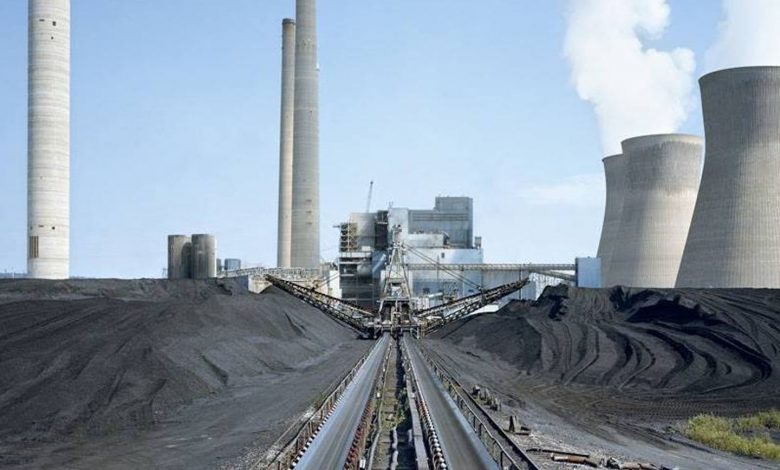Every Region On Earth Can Replace Fossil fuels With Renewable Energy To Keep Warming Below 1.5ºC

A new analysis report-“Fossil Fuel Exit Strategy” analyses global renewable energy potential, and finds that every region on Earth can replace fossil fuels with renewable energy to keep warming below 1.5ºC and provide reliable energy access to all.
The world already has more than enough renewable energy potential to comfortably make the transition away from fossil fuels while also expanding energy access for all, finds new analysis by Dr Sven Teske and Dr Sarah Niklas from the Institute for Sustainable Futures, University of Technology, Sydney.
Fossil Fuel Exit Strategy shows clearly through detailed modelling that, even if no new fossil fuel projects were built from today onwards, carbon emissions from existing projects are still far too high to stay on course towards meeting the goals of the Paris Agreement. Modelling in the report demonstrates the world would produce significantly more fossil fuels than it can afford under a 1.5ºC climate goal by 2030, leading to 66% more emissions in 2030 than is compatible with 1.5ºC. Therefore, the world needs to actively wind down existing coal mines and oil and gas wells while increasing renewable energy.
According to Sanjay Vashist, Director of Climate Action Network South Asia: “There are no more excuses to further delay accelerated uptake of renewable energy and ending the age of fossil fuels. At a time when renewable energy has emerged as a reliable and cost effective alternative, to continue to expand the fossil fuel sector is a criminal waste of money that will have devastating climate and humanitarian consequences, especially on the poorest of poor and most vulnerable people of the global South. G7 leaders must set an example and shut down coal plants in their countries immediately and assist the developing world in leapfrogging to renewable energy with technological and financial assistance.”
The report shows that this transition is not only required but completely feasible. The world simply doesn’t need any more fossil fuels. In fact, all regions have enough renewable energy to provide energy access to all using existing technologies.
This suggests that it is possible to meet the twin challenges of phasing out fossil fuels and increasing electricity access at the speed required through scaling up renewable energy, according to Fossil Fuel Exit Strategy: An orderly wind down of coal, oil and gas to meet the Paris Agreement.
According to Tzeporah Berman, International Program Director at Stand.Earth and Chair of the Fossil Fuel Non-Proliferation Treaty Initiative: “This new report shows clearly that we have more than enough fossil fuels above ground and under production and that we have the technology and renewable energy capacity to more than meet the world’s energy needs. Fast tracking a wind down of oil, gas and coal and focusing on expanding renewable production and infrastructure is not only possible, but it will save lives.”This report comes shortly after the International Energy Agency’s Net Zero by 2050 Roadmap that states clearly the world needs to stop investing in and expanding fossil fuels. The Fossil Fuel Exit Strategy report goes further by finding that it is also necessary to begin phasing down existing coal mines and oil and gas wells to have a chance of preventing catastrophic climate change.
Report’s main findings include:
a) Even if fossil fuel expansion ended overnight, too many fossil fuels are already under production in existing coal mines and oil and gas wells to remain within a 1.5°C budget.
b) To keep warming to below the temperature goal of 1.5ºC there must be both an end to expansion of fossil fuel production, and a phase down of existing production.
c) The world has more than enough renewable energy resources that can be scaled up rapidly enough to meet the energy demands of every person in the world.
d) The report shows that, by 2030, even without any new coal, oil or gas projects, the world would produce 35% more oil and 69% more coal than is consistent with a 1.5°C pathway.
e) Every continent in the world has enough renewable energy potential to provide 100% renewable energy access to its population.
e) As the cost of renewables has dropped, economic potential for renewables has grown alongside technical potential. Even when taking into account environmental safeguards, land constraints and technical feasibility, solar and wind energy could power the world more than 50 times over.
f) Continuing to expand the fossil fuel sector will only lock in further infrastructure that will become stranded assets, with devastating climate and humanitarian consequences.
According to Associate Professor Sven Teske, Research Director at the University of Technology Sydney: “National governments must establish binding limits for the extraction volumes for coal, oil and gas. A just transition for workers from the fossil to the renewable energy industry is essential. Any new investments in coal, oil and gas projects are not in line with the Paris agreement and would most likely be stranded due to favourable economics for renewables – especially solar and wind. The combination of renewable energies, storage technologies and renewable fuels such as hydrogen and synthetic fuels will provide reliable energy supply for industries, future travelling as well as for buildings. The fossil energy industry must be wound down.”
Dr.Seema Javed is an Environmentalist, Independent Journalist & Strategic Communicator for Climate Change




